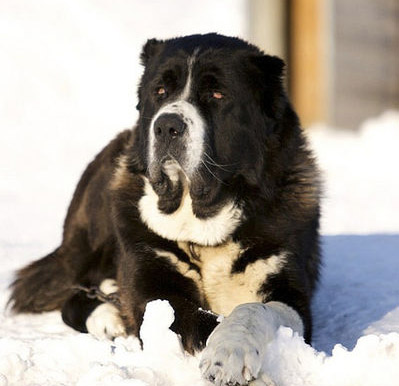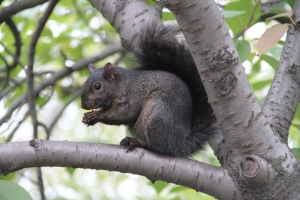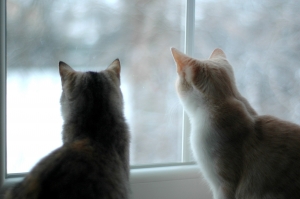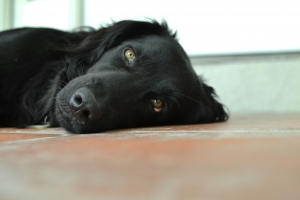 Each year household pets fall victim to injuries, and even death, from something that could easily have been prevented by their owners.
Each year household pets fall victim to injuries, and even death, from something that could easily have been prevented by their owners.
The cause? Winter weather. This week especially, brings bitter cold to the Northeast US.
One of the biggest misconceptions pet owners make is that their pets are safe from winter because of their fur and thick coats. However, once the temperature drops, pet owners have to remember that their dogs, cats, and other pets are just as vulnerable to the cold weather as humans are.
Here’s how to protect your pets during the winter:
- Special care for old, short-haired, and small dogs. If you have one of these types of dogs, here’s a good tool to remember for the winter: If you’re cold, so are they. What does this mean? It means coats, possibly booties, and keeping these dogs off the freezing cold ground as often as possible.
- Big and thick-fur dogs are like teenagers. What does this mean? It means they’ll refuse to accept that it’s cold outside. If they could, they’d wear shorts in 20-degree weather. Be a responsible pet owner and monitor your dogs’ outdoor activities. While big, healthy and thick-fur dogs are less likely to get as cold in the winter as other animals, they are not immune to frostbite, particular on their tender paws.
- Speaking about paws … There are a number of products out there to help you winterize your dog’s paws. Many pet owners believe that dog paws are durable enough to sustain the winter, however, that’s not so. And not only do you have to worry about cold snow and ice causing damage to your dog’s paws, but consider other elements including the harshness of concrete, not to mention …
- Salt and other chemicals. With winter comes a number of chemicals that are used to melt and treat snow and ice. These chemicals are extremely dangerous for your pets. Not only do you have to be concerned about them licking these chemicals (remember, antifreeze smells sweet to dogs, but can be fatal), but you have to beware of their licking their paws after a trip outside. Be sure to clean your dogs thoroughly, particularly their paws, to rid them of these harmful chemicals.
- Feed your outdoor pets a little more. Don’t you tend to eat a little bit more in the winter? Why is that? Because your body needs extra energy to produce body heat and stay warm. Your outdoor pets are no different. Don’t overfeed them too much, but give them a little more food to help their bodies combat the winter weather.
Protect your pet during and after the winter
There are certainly more than five ways to help protect your pet in the winter that every pet owner should consider. Talk to your vet for suggestions specific to your pet’s needs. And remember, pet protection goes beyond winter, as well. Be sure to learn all the ways to maintain your pet’s health, this winter and beyond.






Thank you for your post. I grew up in a state where the weather would get bitter cold, and I remember my dad opening our wellhouse door every winter & laying out thick blankets under heating lights for our dogs. I never understood, but as an owner of short haired dogs, who don’t go out in the winter without their coats, I now know how kind my father was to the family dogs. We lived on a farm, and I remember seeing the neighbors dogs huddled under whatever offered protection. Now I advocate for the dogs who have no protection. Thank you again for helping others understand.
Comments are closed.